(This project is posted at https://app.helperbit.com/project/5a406bb2368cf23577a1a4f2. Please donate via Helperbit.)
Brief Introduction
Nigeria is the most densely inhabited country in Africa with a population of more than 174 million people and growing rapidly. As the population increases, remote communities are further cut off and urban facilities become overloaded.
Poverty is widespread in Nigeria, and despite a natural wealth of gold, oil and diamonds, these potential resources are not being transformed into employment or improvements in living standards for millions of people.
In rural areas, living standards are often bad. Communities are cut off from the benefits of development like roads, water supplies and toilets.
Many people spend long hours each day collecting water, with huge costs to their health and livelihoods.
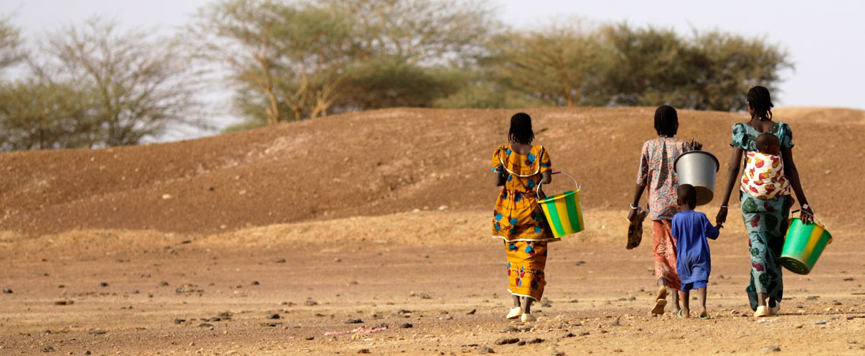
Nigeria has made substantial progress in developing policies and strategies for water supply and sanitation service delivery, but faces major challenges in translating these into action.
About 63 million people, out of a population of 171 million, lacked access to safe drinking water, and over 110 million lacked access to improved sanitation in 2013. Open defecation rates, at 28.5 per cent pose grave public health risks.
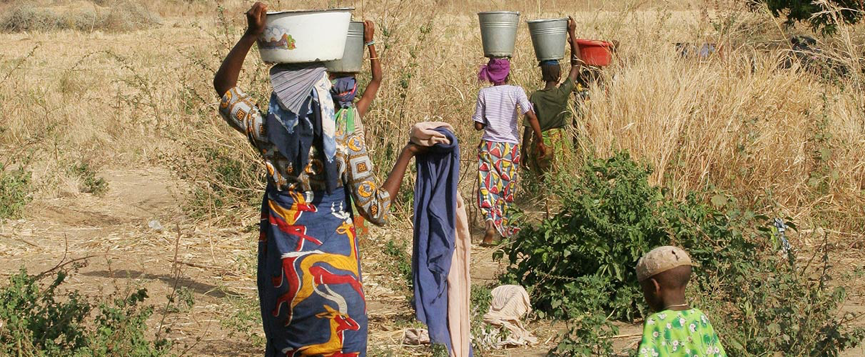
Every year, an estimated 124,000 children under the age of 5 die because of diarrhea, mainly due to unsafe water, sanitation and hygiene. Lack of adequate water and sanitation are also major causes of other diseases, including respiratory infection and under-nutrition.
Many schools in Nigeria lack safe, private toilets and hand-washing facilities. This affects enrolment and performance, particularly in the case of girls. The impact of water, hygiene and sanitation falls disproportionately on women and girls, the main carriers of waters.
UNICEF has contributed to the eradication of guinea worm disease. In 2013, Nigeria was certified free of the disease. By comparison, 653,620 cases of guinea worm disease were recorded in Nigeria in 1988.
Problem of clean water in most local communities in Nigeria
Nigeria definitely has problems with accessibility to clean drinking water. Although 27 million new Nigerians have gained access to clean drinking water since 1990, only 47 percent of the population can access safe water right now. The biggest water shortages come in rural region of Nigeria. According to USAID, this leads to high cases of waterborne illnesses, threatens farming, and causes low levels of school enrollment. So obviously, this affects the daily lives of Nigerians in a negative way. Majority of the Nigerian water supply comes from surface water. Although groundwater is important too, the geology of Nigeria makes it difficult to get water especially in most of the local regions. Nigeria does have a close network of rivers and streams but it seems that most of its issues with surface water come from inadequate planning and management.
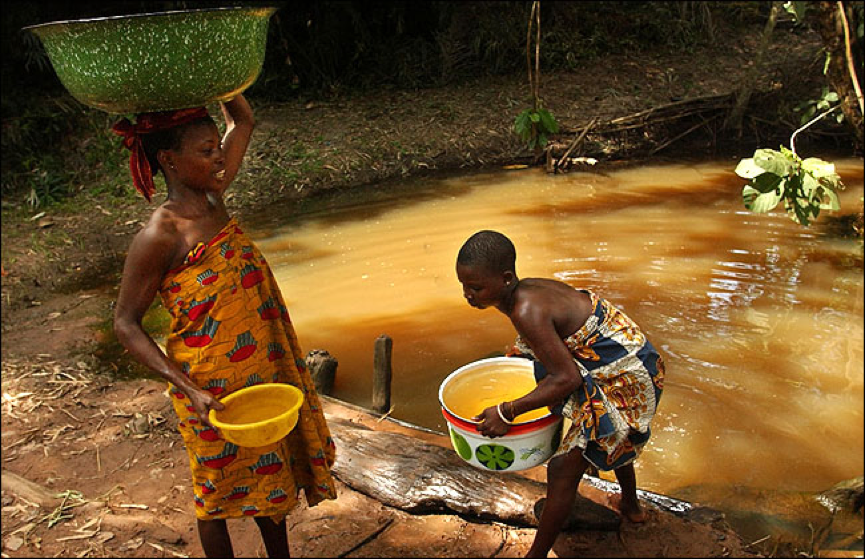
A lot of Nigeria’s citizens in the rural areas use water they gather themselves from where ever they can get it (streams, ditches, lakes, wells, etc…) but, most of it is untreated. According to Nigerian water law, Nigerians may take water without charge for domestic purposes or watering livestock from any watercourse the public has access to. Only urban areas have indoor plumbing and in those areas only the rich or tourists have access to it. The plumbing that does exist is also suffering from severe neglect (WaterAid). With 70 percent of Nigeria’s population considered under the poverty line (earning less than one US dollar a day) one could see how this would be a problem.
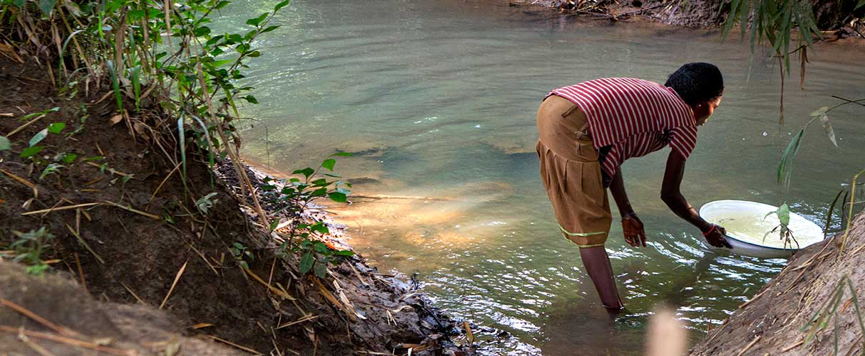
Nigeria’s Water Hygiene and Sanitation Problems
Waterborne contaminants are a huge problem in Nigeria. Even though the country is relatively wealthy due to oil production, an estimated 335,000 children die annually from waterborne illnesses. Although most fatalities in Nigeria are caused by bacterial or protozoal diarrhea, other illnesses include intestinal worms, Hepatitis A, Hepatitis E, and typhoid fever. Pollution, particularly from mining, is also big issue in Nigeria. As a byproduct of gold mining, high concentrations of lead can get into local water supplies. During one incident in 2010, 163 people died from lead poisoning.
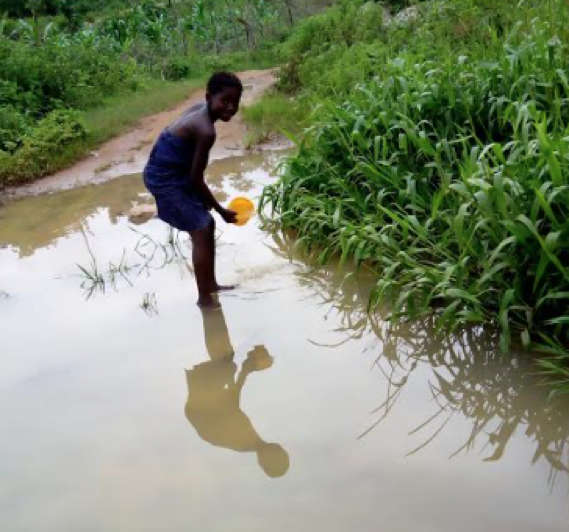
At the present time many international aid organizations are helping with Nigeria’s water sanitization efforts. Groups like UNICEF, USAID, and WaterAid are providing resources and education to the Nigerian people so they can clean their drinking water. Even simple things such as washing their hands and using cloth to strain water can make a difference.
What can be done to help the Local People?
With the CBCGDF being an organization dedicated to biodiversity conservation, environmental protection and sustainable green development, this organization is hence taking it to heart to help in the provision of clean water for 3 local communities in Edo state Nigeria. This project is also a pathway towards fulfilling the United Nations sustainable development Goals (provision of clean water).
The objectives of this project include;
l To create a sustainable supply of clean water in 3 communities in Edo state Nigeria.
l To enlighten the indigenes of these communities on the importance of clean water, proper hygiene and environmental protection.
l To educate the indigenes on how to carry out healthy house-hold treatment and storage procedures relating to clean water sustainability.
l To increase the overall availability, accessibility, sanitation, and hygiene of water in these 3 communities, Nigeria.
Course of Action
In order to provide clean water for the people of these 3 local communities, our strategy will be to build a solar powered bore-hole. Through this approach the indigenous people will be saved from the sickening prevalence of bad quality water in the region and also the stress of traveling a long distance to fetch water from questionable sources such as polluted rivers, lakes, unsafe wells and pipes. The propose bore-hole we intend to build will be solar powered instead of the regular gas powered pump bore-hole, hence encouraging the use of green power to help reduce the emission of polluted substance in the atmosphere which is in turn harmful to the health to the people.
Sustainability
We intend for this project to be highly sustainable. As a result of this, we plan to establish a commission system in the community through which the leaders of the village as well as the indigenes will take active part in the planning, execution and implementation of the bore-hole. We intend for this project to be highly community-based as this will help establish cohesion in the establishment of the project and promote positive peace. This commission will be in charge of overseeing the project and ensuring that the bore-hole is properly maintained to ensure the continuous flow of clean water for the people of the community.
Regulation and Monitoring of Project after Execution
At the end of our 8 weeks of embarking on this project, we would have taught the people on how to make water clean and healthy for consumption by teaching them through practical hands-on training on the importance of boiling water. We will appoint an overseer community who is competent and literate to report to us (CBCGDF) on a monthly basis on the project progress and sustainability.
Significance of Project
Water is life. Water serves as a basic human resource for drinking, farming, cooking and various sanitary activities. This project will change the lives of the people who live, work, go to school and farm.
With these villagers drinking from the same river water that contains toxic waste. We consider this an outrage to humanity. And based on our knowledge on the risk of bad quality water, we understand what it means to get ill from drinking unsafe water. These people have been exposed to such conditions due to the lack of access to clean and affordable drinking water. With the help of this project, we intend to help improve the health and sanitary lifestyle of the people in these 3 communities. We trust that the proposed Projects will allow the citizens of this village this basic needs.
Budgets
Item | Description | Qty | Unit | Rate(USD) | Amount(USD) |
1 | Housing Equipments, including the Civil work for construction, roofing and Fencing | 1 | Lump sum | 12,431 | 12,431 |
2 | Survey, Borehole Drill, Pipe Connection to the Well Head tanks. | 1 | Lump Sum | 4781 | 4781 |
3 | Erection of Tank stand, 3000LT Storage tank and connection of Water supply Line 2 | 1 | 7830 | 7830 | |
4 | Mechanical 5HP Pump Unit (Stand-by and Duty- 2 Unit) | 1 | 4781 | 4781 | |
5 | Electrical Solar Panel System supply and Installation. | 1 | 9562 | 9562 | |
6 | Lighting System. | 1 | 956 | 956 | |
7 | Maintenance 1 year. | 1 | 2732 | 2732 | |
Total | 3 | 43073 | 129,919 |
PROPOSED LAYOUT
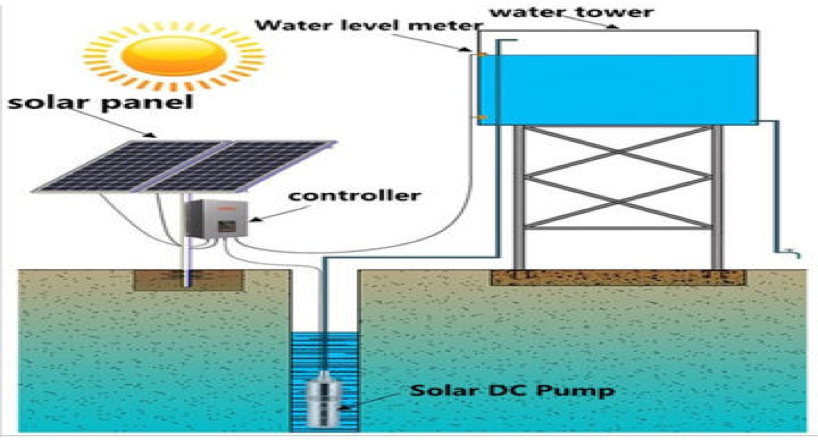
PROPOSED PROJECT STRUCTURE
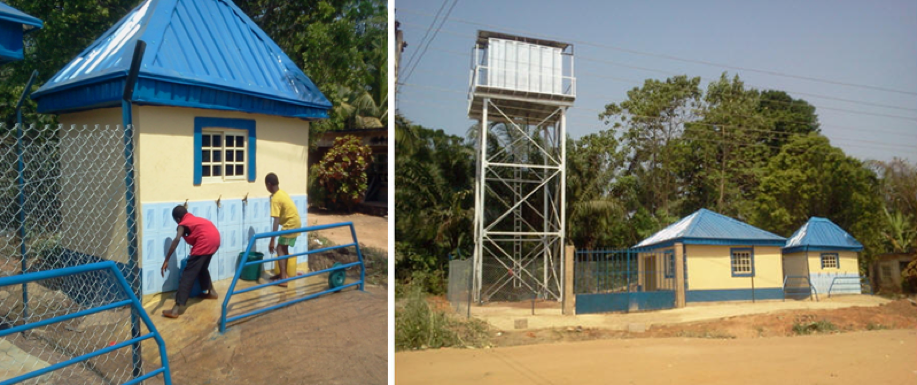
OPERATING DETAILS
OPERATING DETAILS
PV: Mono 125wp x 10pc - 1250wp Pump: Grund fos SQ Flex 2.5-2
Drill Depth: 150 meters/ 492 feet Installation depth: 70 meters/230 feet
Flow rate: 3,000 Liters/ hours Tank capacity: 3,000 liters
CONCLUSION
The SOLAR BOREHOLE Project will be executed hence creating room to training the unskilled undergraduate youth for the Community on the Job. And also as a medium of educating the people on proper hygiene and sanitation hence fulfilling the Sustainable development goal on clean water provision and good hygiene.
